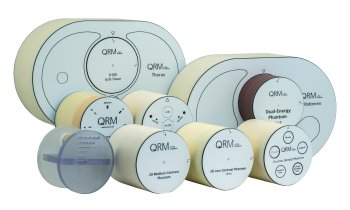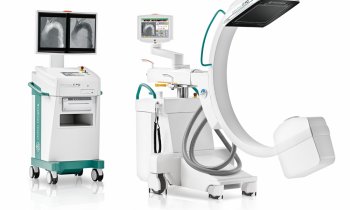Countdown to Paris
With its spotlight theme of ‘Controversial Issues in Cardiology’, the 2011 edition of the European Society of Cardiology (ESC) Congress promises lively discussions and ground-breaking debate. The ESC Congress is well established as the world’s premier cardiovascular conference and regularly attracts around 30,000 international cardiologists and members of related professions through its doors. It will be held this year in Paris, at Parc des Expositions, Paris Nord Villepinte between 27 and 31 August.

“We chose the spotlight theme in order to clarify conflicting views across several aspects of cardiovascular medicine,” explains Professor Michael Böhm, the newly appointed Chairman of ESC’s Congress Programme Committee. “There are, inevitably, differing opinions within our profession on certain topics, and these occur anywhere from basic science and research to the most complex interventional procedures. We want the ESC Congress to be the platform where we can have a constructive debate on the issues based on evidence and experience.”
A series of dedicated sessions is planned to address each of the controversial issues. The format will be for highly qualified experts to present the case for and against, with participation from the floor to probe deeper into the detailed arguments. Professor Böhm, who is also Head of Cardiology at the University Hospital, Saarland, has high hopes for a positive outcome, “We expect to achieve consensus on several issues and, for the others, to at least agree the need for better evidence or identify those circumstances in which individual decisions are correct.”
The ESC Congress enjoys an international reputation for its world-class programme of scientific sessions, workshops and presentations, and related exhibition of medical equipment, treatments and services. Experts from the global cardiology community, including care professionals and nurse specialists, are invited to submit abstracts of the work they would like to share with colleagues at one of the sessions or workshops. These typically address the main topics of cardiology such as heart failure and coronary artery disease, and also cover the cardiology life-cycle from fundamental research to prevention strategies. In total, around 4,000 abstracts will be selected from over 10,000 submitted, and will be presented either in oral abstract or poster sessions.
ESC Congress 2011 also sees a growing role for the ESC’s Cardiologists of Tomorrow programme. This group represents both cardiologists-in-training and certified cardiologists, and it was formed to encourage greater participation by these future leaders of the profession.
With strong support from the ESC President, Professor Michel Komajda, it has been agreed to establish sessions of specific interest to young cardiologists. These cover such topics as interpreting clinical trial results, applying for and managing EU research grants, how to submit abstracts to the Congress, and writing articles for the European Heart Journal. In addition, one of the spotlight sessions – Controversy in Post-Graduate Cardiology – will be jointly chaired by a member of the Cardiologists of Tomorrow group, while a further special session covering challenging clinical cases is scheduled to be also chaired by a young cardiologist.
Dr Stéphane Zuily is a specialist in vascular medicine at Nancy University Hospital in France, and a member of the nucleus committee of the ESC Cardiologists of Tomorrow programme. “We are excited by this opportunity to raise the profile of young cardiologists,” he says. “Together with my nucleus colleagues, we have planned a wide range of activities at Congress to increase the contribution we make and to facilitate improved training, education and networking.”
The European Society of Cardiology is looking forward to returning its Congress to the city of Paris after 30 years, with a radically higher number of delegates compared to 1980. The event will welcome delegates from around the world, and from all medical disciplines including scientists, researchers, practitioners, academics, epidemiologists, nurses and technicians, along with representatives of the healthcare industry and influential policy makers. Professor Böhm concludes, “Improving the quality of care of cardiovascular patients is one of mankind’s biggest challenges, and is the guiding mission of the ESC. The outcomes from ESC Congress 2011 in Paris will move us closer to that goal.”
For further information please click here
Picture source: pixelio / birgit winter
12.01.2011









